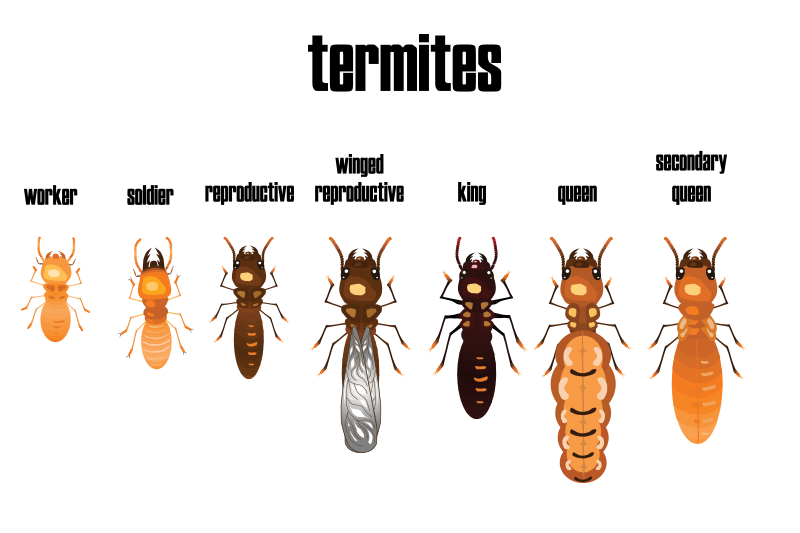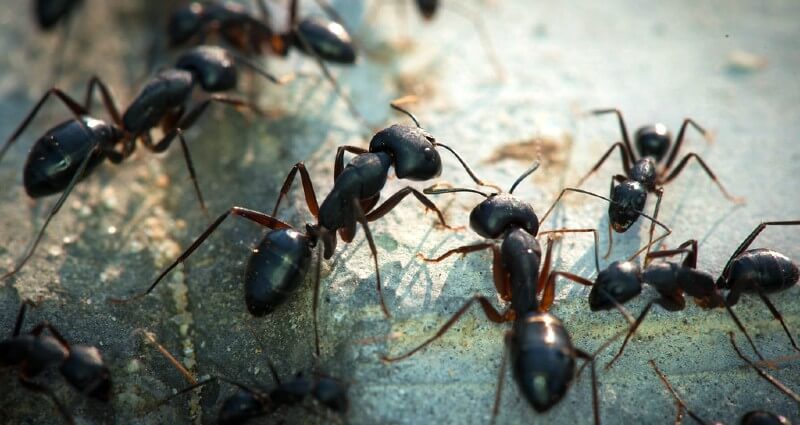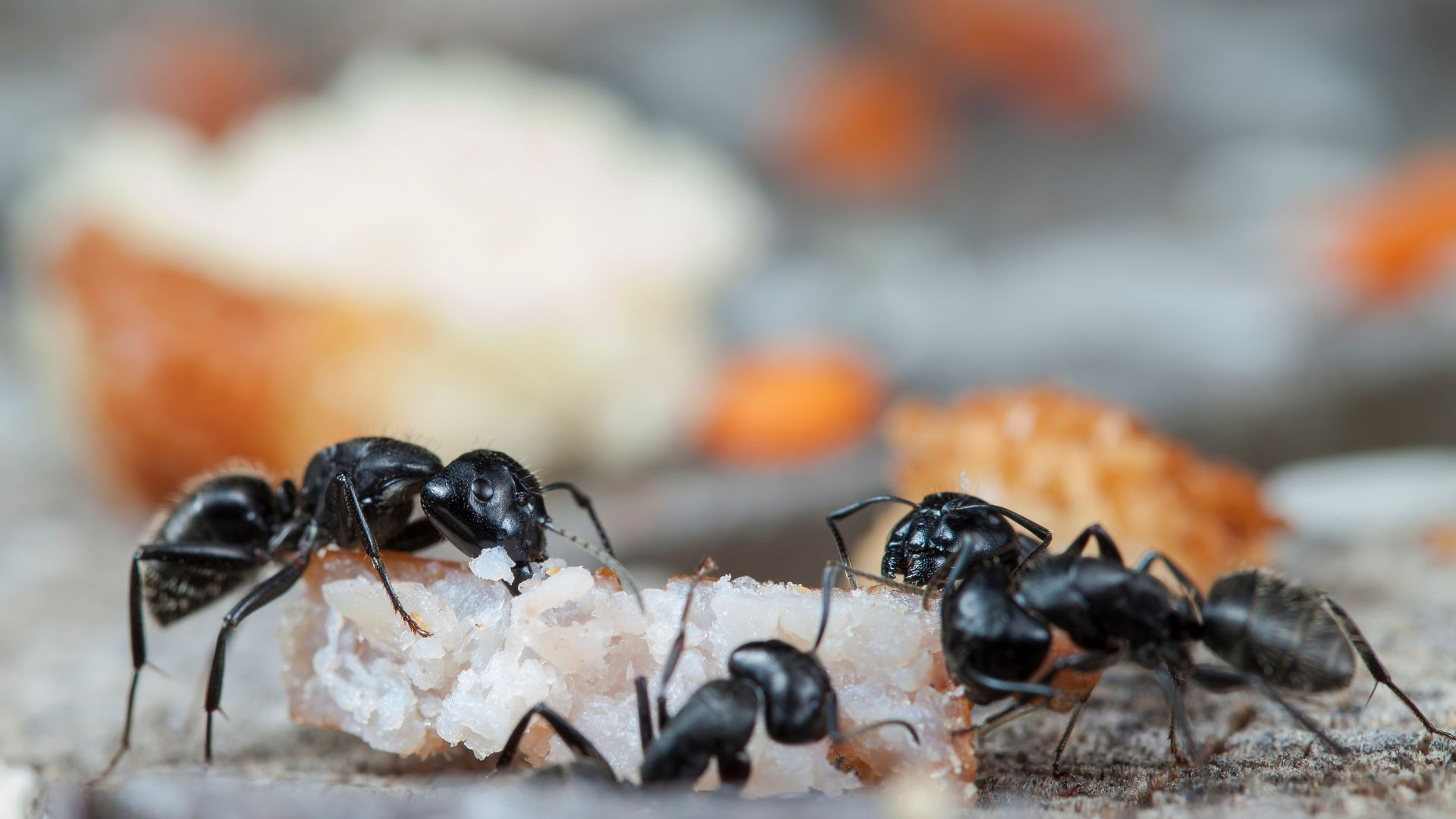Premier Termite Control Services: Ensure Long-Term Protection for Your Building
Premier Termite Control Services: Ensure Long-Term Protection for Your Building
Blog Article
Ecological Effect of Insect Control: Harmonizing Efficiency With Sustainability
The environmental influence of pest control is a vital concern that calls for a delicate equilibrium in between achieving performance in taking care of parasites and making sure sustainability of our ecosystems. From the usage of damaging chemicals that seep into our dirt and water to the unintentional effects on non-target species, the effects of standard parasite control techniques are far-ranging.
Harmful Chemicals in Parasite Control
The application of hazardous chemicals in bug control presents considerable environmental and health risks that call for mindful factor to consider and mitigation methods. Pesticides, pesticides, and herbicides are commonly utilized to remove insects, but their widespread application can result in unintended repercussions. These chemicals can pollute dirt, water sources, and the air, affecting not only the targeted insects yet additionally valuable bugs, wild animals, and humans.

To resolve these dangers, integrated insect monitoring (IPM) techniques are being advertised as an extra lasting alternative. IPM involves a combination of approaches such as biological control, habitat manipulation, and the targeted use chemicals as a last hope (ant control lexington nc). By taking on an all natural approach to pest control, we can minimize the ecological and wellness effects related to damaging chemicals while successfully handling pest populations
Effect on Non-Target Species
Considering the unplanned repercussions of parasite control techniques, the effect on non-target types is a vital aspect that requires extensive assessment. While parasite control procedures aim to target details bugs, other microorganisms in the ecosystem might be accidentally impacted. Non-target types, consisting of useful pests, birds, creatures, and even plants, can suffer indirect or straight injury from chemical applications or biological control techniques.
Insecticides designed to fight a certain bug bug may damage pollinators like or all-natural killers such as ladybugs. Organic control agents, if not species-specific, can present dangers to unexpected targets, interrupting the ecological balance.
To reduce the effect on non-target types, incorporated bug management (IPM) approaches that highlight an all natural method to pest control are advised. These techniques focus on using eco-friendly techniques, decreasing injury to advantageous organisms while efficiently managing pest populations. Carrying out detailed risk evaluations and checking the outcomes of insect control efforts are important action in securing non-target types and advertising overall ecosystem wellness.
Dirt and Water Contamination
Unintended environmental repercussions of pest control approaches prolong beyond affecting non-target varieties, with significant implications for soil and water contamination. Chemicals, herbicides, and chemical fertilizers made use of in bug control can seep right into the soil and pollute groundwater, posing a threat to both water and terrestrial communities. Dirt contamination can interrupt the balance of bacteria important for nutrient cycling and plant development, bring about lowered dirt fertility and productivity. Furthermore, these chemicals can continue the atmosphere for extensive periods, accumulating in the dirt and possibly entering the food cycle.
Water contamination is another important problem associated with insect control practices. To reduce dirt and water contamination from parasite control activities, incorporated parasite administration methods that focus on sustainability and reduce chemical inputs are essential.
Air Pollution From Pesticide Use
Direct exposure to airborne chemicals throughout agricultural applications postures a considerable worry for air pollution control measures. Additionally, chemical drift, where pesticides are lugged by the wind to unintended locations, can Learn More Here lead to the contamination of neighboring ecosystems and water bodies.

Approaches for Sustainable Insect Control
In the world of agricultural practices, implementing lasting pest control methods is paramount for maintaining eco-friendly balance and guarding crop returns. Sustainable bug control emphasizes making use of eco-friendly methods to take care of pest populaces properly while minimizing harm to non-target organisms and ecological communities. Integrated Parasite Monitoring (IPM) is a widely adopted technique that incorporates biological, cultural, physical, and chemical control approaches to accomplish lasting pest management remedies.
One trick strategy in sustainable pest control is promoting biodiversity within agroecosystems. By improving natural adversaries of insects, such as killers and parasitoids, farmers can reduce the demand for synthetic pesticides. Plant turning and diversification are also reliable methods to interrupt pest life process and develop less desirable problems for parasites to thrive. Furthermore, making use of pest-resistant plant ranges and employing strategies like catch cropping can help in reducing bug stress without counting greatly on chemical interventions. Ultimately, by incorporating these sustainable parasite control methods, farmers can accomplish a balance between pest management effectiveness and ecological stewardship.
Conclusion
Finally, the ecological impact of bug control techniques have to be meticulously taken into consideration to stabilize effectiveness with sustainability. Harmful chemicals used in insect control can lead to soil and water contamination, air contamination, and damage non-target varieties - ant control. It is essential to apply sustainable pest control methods to minimize these adverse effects on the atmosphere and promote a healthier community for future generations
By embracing an all natural technique to pest control, we can reduce the environmental and wellness effects associated with dangerous chemicals while effectively handling pest populaces.

To reduce the air contamination caused by pesticide usage, it is essential to embrace integrated bug administration methods that focus on the usage of non-chemical parasite control techniques, such as crop turning, all-natural killers, and immune plant ranges. Lasting bug control emphasizes the usage of environmentally pleasant techniques to manage parasite populations effectively while minimizing damage to non-target organisms and environments. Integrated Insect Management (IPM) is an extensively adopted approach that incorporates biological, social, physical, and chemical control techniques to accomplish lasting parasite monitoring services.
Report this page